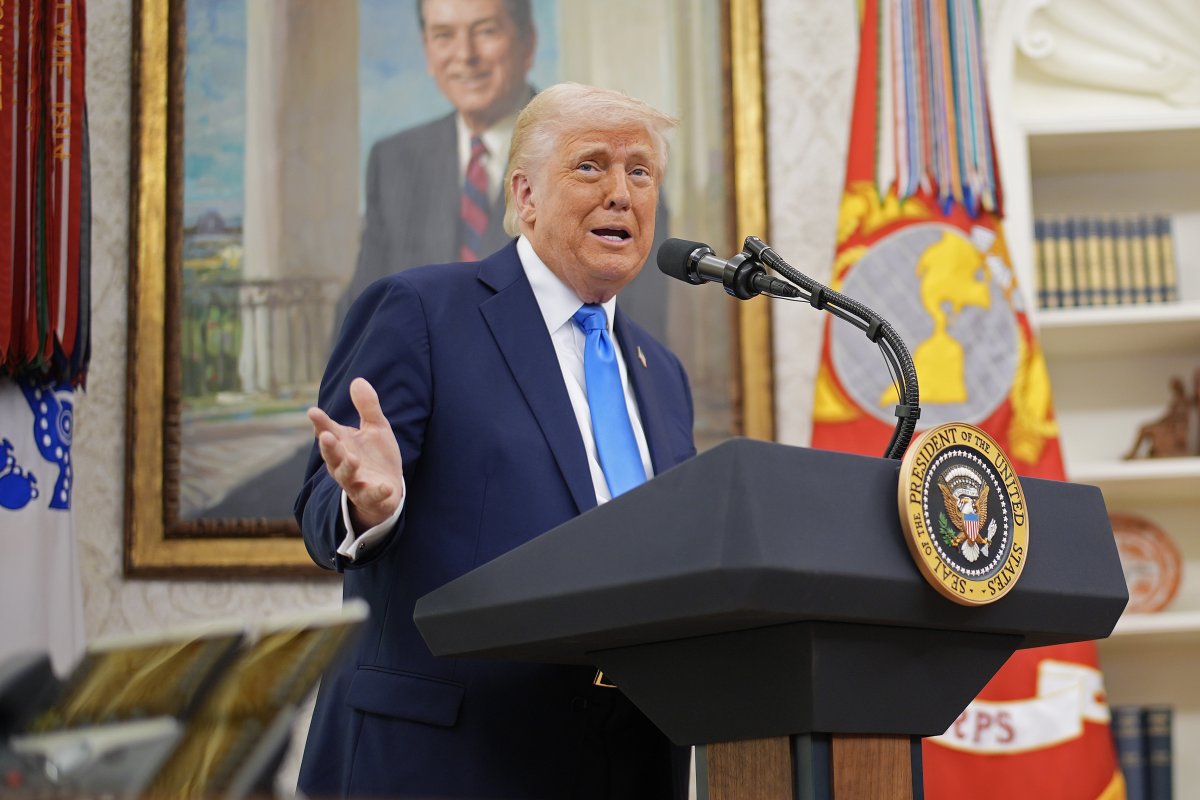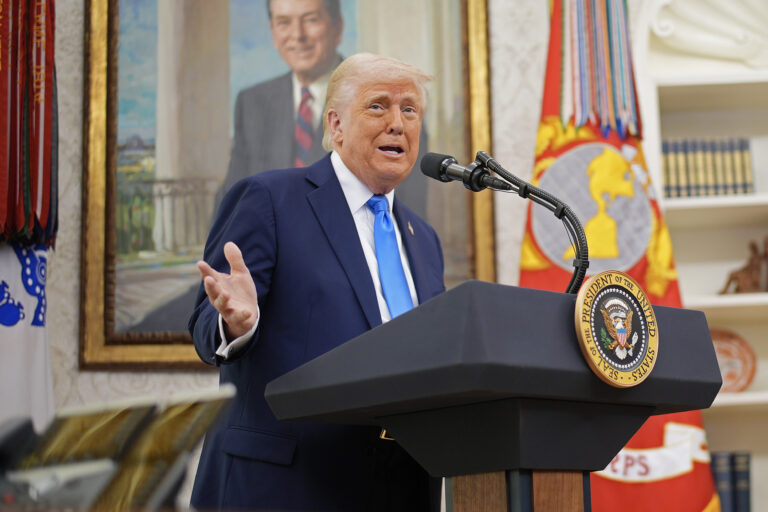President Donald Trump has never been shy about picking fights, but his latest battle, against Big Law, is one that is aimed at striking the very foundation of the American legal system.
By issuing executive orders that target major law firms like Paul Weiss, Jenner & Block, Skadden Arps, and WilmerHale, Trump is doing more than just flexing his political muscle—he’s actively undermining the independence of the legal profession. It’s one thing to criticize lawyers; it’s another to use presidential power to punish them for doing their jobs.
The crux of Trump’s attack is his accusation that these firms are “weaponizing” the judicial system and pushing diversity initiatives he claims are discriminatory. It’s a classic Trump move: take an issue that’s been around for decades—whether it’s affirmative action, judicial activism, or corporate law firms siding with progressive causes—and turn it into a political spectacle. But beneath the spectacle, there’s a real and dangerous precedent being set. If a sitting or former president can successfully coerce law firms into submission by threatening financial ruin, what happens to the idea of legal independence?

More
Andrew Harnik/Getty Images
So far, the responses have been mixed. Some firms, wary of the potential fallout, have quietly distanced themselves from certain diversity programs or taken a more neutral stance in high-profile cases. Others are beginning to take a stand, arguing that Trump’s orders are not only unconstitutional but a direct attack on the principles of legal advocacy.
Jenner & Block and WilmerHale are making a comparatively bold statement at the moment. By accusing the president of violating multiple constitutional rights—including free speech, free association, due process, and equal protection—they are signaling a willingness to take on the administration, even at the risk of losing major corporate clients. Given that many big businesses, absolutely including law firms, fear provoking Trump, their stance underscores a readiness to prioritize principle over profit.
The timing of all this, of course, is not a coincidence. As Trump’s first few months in office continue to unfold, he’s leaning into his tried-and-true playbook of attacking institutions he sees as standing in his way to whatever he defines as success (which, on most days, seems like systemic implosion). The media, the courts, the Department of Justice—these have all been regular targets. But going after private law firms? That’s a new escalation, one that speaks to a broader strategy of dismantling any check on his authority. If lawyers fear professional retaliation for taking on cases that don’t align with Trump’s agenda, how many will think twice before representing the next client who dares to challenge him?
All of this is coming directly up against the entire premise of the legal system—that everyone deserves representation, whether they’re a billionaire real estate mogul or an asylum seeker fighting deportation. If the government starts dictating who can and cannot practice law freely, then we’re not far from a justice system that serves power, not people.
Let’s be clear: this isn’t just about Trump. If his tactics prove successful, other politicians—Republicans and, arguably, Democrats alike—may see an opening to exert pressure on the legal profession for their own ends. The danger isn’t just that Trump is doing this; it’s that he’s normalizing it. A government that can dictate which lawyers and firms are allowed to thrive based on political loyalty is a government that has abandoned the rule of law.
The intersection of law and politics is, from the perspective of someone who has worked in and written about this for decades, fundamentally about what is and isn’t OK. The kinds of behaviors we pretty much all used to think were definitely not OK no longer bring the kinds of response they should. When every new day seems overwhelming and impossible to digest, we let things slide that we would never have allowed to slide in the past.
This Big Law fight is the result of us allowing things to slide to the point where they often seem irretrievable. It challenges the imagination to envision the massive powerful complex known as Big Law as so afraid of a presidential administration that it rolls over like a submissive puppy. But here we are because these firms fear that this administration isn’t a bump in the road, it’s indicative of the next and the next next in politics.
That’s why this fight shouldn’t be placed in the light and context of any specific law firm. It’s about the broader legal profession and whether it can continue to function independently in the face of direct political threats. The role of lawyers truly isn’t to serve as cheerleaders for any one administration. It’s to represent clients, uphold the law, and, when necessary, challenge abuses of power. That’s exactly what Trump wants to prevent, and that’s why this exact moment is so dangerous.
At the end of the day, legal independence isn’t just some abstract principle—it’s the bedrock of democracy. Without it, the courts become just another arm of political enforcement, and justice is reserved only for those in power. If Trump’s latest crusade against law firms is allowed to stand, we may look back and realize this was the moment when the legal profession lost its ability to stand up to political pressure. And when that happens, the rest of democracy won’t be far behind.
A Pulitzer Prize-nominated journalist for his groundbreaking op-ed in The Independent exposing the NFL’s “race-norming” policies, Aron Solomon, JD, is a globally recognized thought leader in law, media, and strategy. As Chief Strategy Officer for AMPLIFY, he leverages his deep expertise to shape the future of legal marketing.
The views expressed in this article are the writer’s own.


